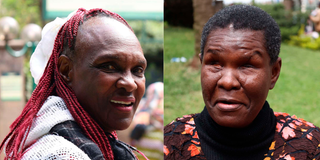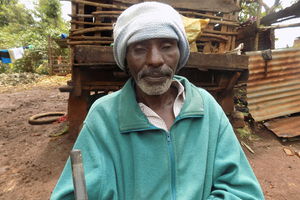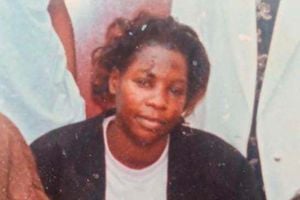
Felesta Ouma and Catherine Bwire survivors of the 1998 bomb blast.
The 1998 bombing of the US embassy in Nairobi was a tragic event that left a trail of devastation in its wake.
While the immediate effects of the attack have been widely reported, a less visible but equally heartbreaking consequence is the dissolution of marriages among the survivors.
On August 7, 1998, a truck bomb exploded outside the US Embassy in Nairobi, killing 213 people and injuring more than 4,000.
Among those affected were people whose lives would be permanently changed, not only by the physical injuries but also by the emotional and psychological effects of the tragedy.
For many survivors, the trauma went beyond the immediate horror of the explosion.
The strain of dealing with serious injuries, ongoing medical treatment and the pervasive sense of loss took a toll on their relationships.
According to some victims, some spouses, overwhelmed by the complexity of caregiving and the emotional burden of their partner's suffering, chose to leave their marriages.
Catherine Bwire's marriage was once a beacon of love and hope.
But in 1998, that light was extinguished in an instant.
At 25 and seven months pregnant, Catherine's life was changed forever by a catastrophic explosion.
“I remember the moment like it was yesterday. The blast was so loud, it felt like the world was ending. I was on the 13th floor of Cooperative House, and everything went dark,” Ms Bwire says.

Chairperson of the Senate Ad Hoc Committee that is pushing for compensation to the Kenyan Victims of the 1998 US Embassy bombing Agnes Kavindu (left) Former CS Labour (2nd left) shares word with victims of the 1998 US Embassy bombing Douglas Sidialo and Catherine Bwire (right) at Bunge towers Nairobi on Thursday, September 21, 2023.
The deafening explosion shattered the building, sending glass and debris crashing down on her.
The force of the blast hurled glass walls and debris, plunging Ms Bwire into darkness as the explosion robbed her of her sight, leaving her to cling to her boss for support.
“I remember the moment vividly: a deafening bang shook the building, and we rushed to the window to see what was happening. The walls were made of glass, and as we looked out, there was another explosion hit. The walls shattered, sending glass raining down on us and causing severe injuries,” she says.
“In that instant, the explosion robbed me of my sight. I was plunged into darkness, unable to see anything. The sounds around me were chaotic—people screaming, crying, and running. In my fear, I screamed,
“Don’t leave me!” My boss, who had been severely injured, managed to guide me. Despite her own pain, she told me to hold onto her blouse as she helped me navigate our descent from the 13th floor,” she said.
Three months in the hospital marked the beginning of Ms Bwire’s new life.
The doctors had to break the devastating news to her husband: Catherine would never see again.
The emotional strain of her blindness, combined with the demands of a newborn, proved too much for their marriage.
The once-loving relationship was strained beyond repair, and her husband eventually left.
“After three months in the hospital, I began my rehabilitation and was referred to Machakos School for the Blind. Returning home was devastating—my life had completely changed. I was unable to work, blind, and struggling with the new reality that had turned my world upside down. My husband was overwhelmed and frightened by the drastic changes,” she says.
“We tried counselling together, but as I went through further rehabilitation and learned to navigate my new life independently, things became even more challenging. When I gave birth to my baby, the strain on my marriage became too much. My husband couldn't handle the changes in my appearance and the overwhelming difficulties, and our marriage fell apart,” she said.
As Ms Bwire faced the brutal reality of her new existence, her world seemed to crumble.
Rehabilitation at Machakos School for the Blind taught her how to live independently, but it couldn't erase the profound sense of loss.
Her face, her life, and her marriage had changed forever.
“Every day felt like a struggle, my face, my life, and my marriage had all changed. I felt like I was grieving not just for myself, but for the future I had lost. The depression was overwhelming, I had no friends, no support, and I had to figure out how to care for my child,” says Ms Bwire.
Despite these obstacles, Ms Bwire’s determination to provide for her child remains unwavering.
“I try to stay strong for her, even though everything is different, I want her to know that I love her and will always be here for her,” she said.
Despite intensive therapy and counselling, Catherine Bwire found herself grieving for the life she once had - a life full of promise and hope.
The burden of supporting her child and managing the realities of her disability compounded her struggles.
“Despite going through counselling to come to terms with everything, I often find myself yearning for the days when I was a vibrant, hardworking young woman,” she said.

Felesta Ouma, a survivor of the 1998 bomb blast is pictured at the Bomb Blast Memorial Park in Nairobi on August 7, 2024, during the 26th memorial of the August 7, 1998 bomb blast attack.
Felesta Ouma, a mother of two, describes the bombing as a heartbreaking turning point in her life.
The physical and emotional scars she carries from that day not only changed her appearance but also led to a devastating personal loss - her fiancé left her.
This abandonment, coupled with the immense challenges she has faced since the attack, has compounded her suffering and left her struggling with deep grief and loss.
“Everything is still vivid in my mind as if it happened yesterday. I had just gone to the back to withdraw some cash. I recall that some banks were on strike that day. While standing in line, we heard a loud bang, but initially, we didn't realize the gravity of it. Soon, pieces of broken glass were raining down on us," Ms Ouma described.
She detailed how, in a state of panic and confusion, she fled the building, injuries and blood streaming down her body.
A Good Samaritan came to her aid and took her to the hospital.
"After the incident, I went back home only to feel an increasing distance from my family. My fiancé woke up one morning and told me he couldn't marry someone with scars on her face. He left without any remorse. My son now lives on the streets because he is ashamed of the scars on his head and refuses to come near me. My daughter won't even let me hold her children," Ms Ouma continued.
Despite having completed her education, Ms Ouma has been unable to secure employment due to the aftermath of the attack and now struggles to pay for housing, leading her to move in with friends.
"I feel like I’ve been cursed with bad luck. I’ve never found a job since that day, and I think I need psychological help as well," she said, her voice tinged with despair.












